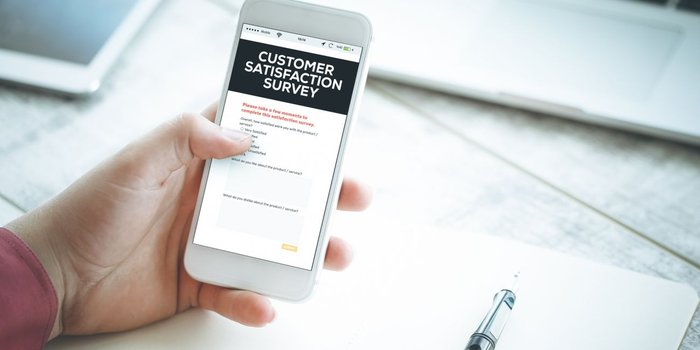Here are some strategies for getting customers to offer up the information you really need, about their experience. How many times, during a customer experience, have you been asked to “just take a quick survey”? And while your answers will presumably have some sort of impact on how the company thinks about its customer experience in the future, you won’t see that feedback loop in action. Surveys can be used to affect the customer experience in the moment. Latest Articles For example, a financial services site can recognize when a site visitor has clearly engaged in credit card research on the site but has not completed an application. Then, when you “train” your customers that answering your questions will result in a better experience, they will answer more of your questions. Beyond providing assistance in the moment, survey data can also enrich your understanding of a customer. Of course, you don’t want to ask a person every single thing about herself, because that results in a terrible experience. For example, a subscription-based fashion retailer can ask a simple question to new customers to uncover which activities they enjoy doing in their free time and use that information to deliver personalized product and category recommendations on the site or in future emails. That way, surveys can be incorporated into the customer experience to help you better understand your prospects and customers and immediately deliver better experiences.
Here are some strategies for getting customers to offer up the information you really need, about their experience.

Opinions expressed by Entrepreneur contributors are their own.
How many times, during a customer experience, have you been asked to “just take a quick survey”? Whether you receive a pop-up immediately after buying something online or get a phone call a few days after an interaction with a service representative, you’ll likely agree that you rarely enjoy the experience.
In fact, you probably ignore most survey requests unless you have something very positive or very negative to say.
The main problems are that: 1) these surveys come to you at inconvenient moments; and 2) there is no obvious benefit for you to take the survey in the first place. And while your answers will presumably have some sort of impact on how the company thinks about its customer experience in the future, you won’t see that feedback loop in action.
As a result, a “customer experience survey” is often the worst part of the customer experience! And that’s a problem during what Forrester has called “The Age of the Customer.”
But, good news: The surveys you want to conduct don’t have to be an annoyance that your customers try to avoid. Instead, they can be used to improve a customer’s experience with your company. How? By becoming one more way you understand and engage your customers as individuals.
Indeed, surveys of the future will:
- allow entrepeneurs to affect each customer’s experience in the moment; and
- allow them to gather valuable insights about each customer as an individual to leverage for future personalization.
Surveys can be used to affect the customer experience in the moment.
When a shopper is in a physical store, an associate can ask her what she is looking for and provide assistance tailored to her needs. If you have no physical store, targeted surveys can help you recreate this type of experience in the digital world — by asking your customer directly what his or her needs are, or how you can help.
Latest Articles
For example, a financial services site can recognize…

COMMENTS